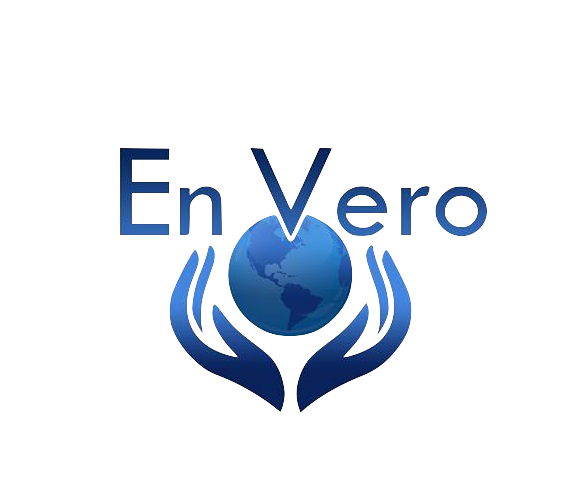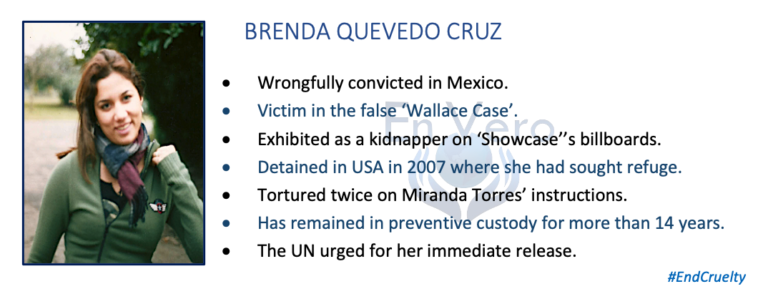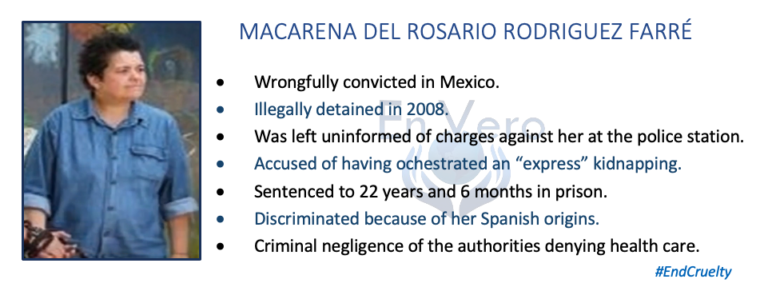Source: L’Affidavit
Author : Louis Guilbault
July 29, 2017
Translation: Jasmine Soso (Original publication in French on January 16, 2016)
Interview with Hon. Ann-Marie Jones, president of the Human Rights Tribunal of Quebec (conducted on oct. 15, 2015)
With the 25th anniversary of the creation of the Human Rights Tribunal of Quebec coming up next December, and the 40th anniversary of the Charter of Human Rights and Freedoms last June, the honorable Ann-Marie Jones, president of the Human Rights Tribunal of Quebec, with a bachelor’s degree in law from the Universite de Quebec in Montreal, generously offered an interview for us with Affidavit. We kindly thank her for taking the time to be available to do so.
Louis Guilbault (LG): In the first years that followed the introduction of the Canadian Charter of Human Rights and Freedoms, the Quebec Charter, like all other legal instruments in Canadian Human Rights forms, is rediscovered. The tribunals go from one Charter to another to interpret these rights and don’t hesitate to be creative and daring. Would you say that the Canadian tribunals are just as such these days?
The Honorable Ann-Marie Jones (Hon. Ann-Marie J.): The Canadian tribunals, including the Supreme Court, broadly and liberally interpret the Canadian Charter. For criminal matters, federally just as much provincially, the tribunals often decide on Charter issues. Regarding the Charter of Quebec, it has existed for 40 years and the TDPQ for the past 25 years. Throughout 1975-1990, the tribunals for common rights interpreted the Charter of Quebec. They had a ‘civilised’ approach to the Charter, and strictly followed the text. With the creation of the TDPQ in 1990, there was an opening, that still exists today, in which the Quebec Charter is looked to in a broad, liberal and evolutionary way in harmony with the international human rights and different international engagements in Canada. It’s clear that by taking an approach like this, the TDPQ is advancing human rights.
LG: In 1990, the Quebec legislator created a specialized human right tribunal, 25 years later, is the TDPQ within its judiciary reason, and largely the Quebec society?
Hon. Ann-Marie J.: I believe TDPQ has a fundamental role: they act upon important society questions, with the required openness when interpreting, like I mentioned before, the broadly liberal way the Quebec Charter, which permits, as the case may be, to make it evolve. The TDPQ is also the only tribunal specialized in human rights in Quebec. Today, I would say a new addition to its purpose, since the TDPQ is increasingly called upon to solve problematic cases or fundamental rights guaranteed by the Quebec Charter conflict. For example, this is the occurrence for the case of between Jeremy Gabriel (better known for his name “Little Jeremy) and Mike Ward. In this case, the Commission des droits de la personne et droits de la jeunesse (Commission for Human and Youth rights, hereafter referred to by CDPDJ) pleads that Gabriel was the victim of an attack on his dignity and reputation following the comments made in regards to his disability by Ward, as part of one of his shows, whereas the Quebec comedian raises two main arguments: First, that his speech is protected by his right to freedom of expression, and Second, the ‘classic’ definition of discrimination doesn’t apply to this case, given that it was an artistic performance. It must be concluded that there will be more and more types of cases like this. Another example, is the religious neutrality of the state in the case Mouvement laique Quebecois c. Saguenay (Ville de). This case illustrates the scope of the cases in which the TDPQ is called upon, as well as the impact that some of these decisions can have on Quebec society. Also, in the last few years, the TDPQ was called upon in question where jurisprudence, Quebec as much as Canada was inexistant, or poorly elaborated. In June of 2015, the CDPDJ introduced an appeal for the 36 alleged victims against the city of Quebec for convictions based on political convictions, more specifically “political profiling” of these people during a protest against rising tuition fees during the student protests in the Spring of 2012. The TDPQ therefore hold a very important role in the Quebec society: the questions submitted to it are a sort of reflection, a mirroring of problems and current subjects that it crosses – problems and subjects which refer to increasingly complex points of law, or the law is often called to evolve.
LG: Since the creation of the TDPQ, has there been a constant on the interpretive approach to the right to equality?
Hon. Ann-Marie J.: It’s not easy to answer that question. Since the creation of the TDPQ, the right to equality has always been the object of a contextual, broad, liberal, teleological and evolutionary interpretation. The jurisprudence flowing from its decisions has influenced the other tribunals. But it’s also necessary to mention that the other judicial and administrative tribunals, notably the employment injury commission and grievance arbitration, were called upon to interpret that right by the Quebec Charter. In this sense, to uncover the constant is not easy, all the more so there is a marked increase in the complexity of the files with this fundamental right.
LG: The specialization and competency of the TDPQ are called into question when the matter from which it can be seized by the CDPDJ which is a matter for which the legislator has also equally attributed to an administrative tribunal?
Hon. Ann-Marie J.: It’s true to say that the competency of the TDPQ has been fragmented over the years. For example, we can mention harassment in the workplace, a subject that is now concurrent with the TDPQ and the Commission des relations de travail. In this context, we can observe two particular things: first, this has the effect of decreasing the number of cases related to this subject for the TDPQ and secondly, the complainants must choose the organization to which they will submit their complaint. I’ll also add another example, that of the elderly being victims of fraud. In cases such as this, the complaints are naturally criminalized. However, it’s equally possible to submit a complaint with the CDPDJ, for exploitation in accordance with article 48 of the Quebec Charter. Therefore there also exists an problem of access to justice that’s associated with a type of ignorance of the remedies of the Quebec Charter.
LG: It sounds like the principles of the Quebec Charter remain unknown among the population, and sometimes even within the members of the legal profession, how can we explain such a misunderstanding despite the importance of the rights being guaranteed?
Hon. Ann-Marie J.: It must be said that the field human rights is relatively new in Quebec and Canada. The Quebec Charter was only introduced 40 years ago. That may seem long, but it’s relatively short, especially when compared to other areas of the law who’s origins date back to Roman law. More so the human rights field is constantly evolving. The TDPQ was created a mere 25 years ago. To establish a ‘culture’ for human rights, like we can find in the United States or in certain European countries, takes time. Elsewhere, there’s an obligatory course in human rights and freedoms in a bachelors of law, which isn’t the case in all faculties of law within Quebec. In high school, there’s course in history and education to citizenship. Without adding an obligatory aspect, we could add within the framework of these courses, a greater part of lessons concerning the charters. In the same spirit, certain cegeps offer law classes (for example: business law, introduction to law, philosophy of law). It would be possible, in a complimentary manner, to add certain elements in terms of human rights.
LG: Do you think the Quebec Charter is reaching its full potential in regards to the objectives we’ve had since it was introduced, or, in the words of its preamble, to protect and affirm the rights and freedoms?
Hon. Ann-Marie J.: It must be said that the Quebec Charter is only 40 years old, despite the fact that it provides generally effective protection of the fundamental rights and freedoms, the right to equality, legal guarantees and political rights, there’s still progress to be achieved to say the Charter has reached its full potential. Let’s talk first about the procedures. With the arrival of the new Code of Civil Procedure, an update of the charter, following the spirit of the simplification of the procedures for the litigant, would have to be done. In the present state of the mechanism provided for in the Charter, the litigant should contact the CDPDJ and not directly the Tribunal. We could simplify the procedure by permitting them to address the TDPQ directly, by example for les complex cases, ones that require pecuniaries of less than 15 000$ connected to a discriminatory statement. However, all the cases which involve the extended remedial powers of the TDPQ, for example: the obligation to set up a non-discriminatory program in the workplace or to take a human rights awareness course, should continue to pass through the CDPDJ. Next, there’s the question of more specific economic and social rights that Mr. Pierre Bosset, Professor at UQAM, qualifies as “parents pauvres de la Charte Quebecoise”. I think economic and social rights could be consolidated. For example, the right to adequate housing, could be added to the charter. This could be an additional legal instrument for the cases filed before the Municipal courts and before the housing authorities, notably on issues of unsanitary housing. It would be a relevant subject to discuss. The Quebec Charter is there to guarantee equal rights, and that includes the protection of the most vulnerable people in the society.
LG: 40 years after it’s adoption, is the Quebec population able to see the usefulness of the Quebec Charter to counter xenophobia and intolerance? Could the TDPQ contribute to the ‘social dialogue’ that imposes on these phenomenons?
Hon. Ann-Marie J.: Starting with the second part of your question. The ‘social dialogue’ falls under the mandate of the CDPDJ. It’s reflected in their reports, opinions and assessments, as well as it’s various recommendations to the Minister of the National Assembly. As for the TDPQ, like all the tribunals it has a duty of reserve and impartiality. Consequently it communicates by its judgements. Therefore it can’t give an opinion or address a general question about current events contrary to the CDPDJ. In regards to the first part of your question as I mentioned earlier the TDPQ has contributed to the broadening of the scope of human rights and freedoms, as well as to clarify the concept of equality through a broad, liberal and evolving interpretation of the Quebec Charter. For example the TDPQ clarified the question of the rights of children with disabilities (such as: attention deficit disorder, invasive trouble of development) on the issue of school integration, in particular by specifying the duties and obligations the school boards have. I therefore think that things are evolving in such a large way thanks to the jurisprudence of the TDPQ that it can be seen that it has positive effects in terms of equality. Concerning the question of the neutrality of the state, the approach taken by the TDPQ was confirmed by the Supreme Court in the Saguenay case, which is now used as a reference for all of Canada
LG: If we want change in order to promote equality between women and men, to address barriers for those with disabilities, to eliminate racial profiling, harmonious integration for newcomers and Aboriginal rights, what work does the future reserve for younger jurists?
Hon. Ann-Marie J.: In my opinion, through education and awareness-raising. We must persevere, get involved in our workplace and in society at large to eliminate these barriers. Before we talked about an obligatory course of human rights and freedoms for a bachelor’s degree in law. Especially, I think in the field of human rights and freedoms is one where nothing is definitively acquired. Finally, to achieve this we must work together in and for society.
LG: Could we say there’s a Quebec approach to human rights?
Hon. Ann-Marie J.: That’s an excellent question. In regards to the protection of human rights, we have the Canadian Charter and the provinces have their own laws in that matter, although most of them concern the right to equality. In this respect, there’s a certain harmony between the approaches. But I think we should nevertheless emphasize that the Quebec Charter, is quite unique. It goes farther than the other laws related to human rights, in particular by guaranteeing a diversity of laws that are unequal, and this, across all of North America: the economic and social rights set out in sections 39 to 48. Moreover, it is the only human rights act in Canada to set up a specialized court, where the judge sitting there is part of the judiciary. Let’s mention that in Quebec, the judge of the Quebec Court that sits on the TDPQ shall do so with two assessors. To compare, the Human Rights Tribunal of Ontario, includes one person, an administrative judge.
LG: According to sociologist Guy Rocher, the Quebec Charter is “part of a representation that Quebec society wanted to give itself, in an evolutionary way”. Do you believe that today’s Quebec society is still ready to renew and evolve this representation that it gave itself 40 years ago?
Hon. Ann-Marie J.: Yes that’s what I think. It has already been partly answered. The question of equality, as well as the way in which we approach it, is a reflection of our society and the challenges it faces. The problems related to equality are constantly evolving and the cases that are submitted to the TDPQ reflect the social situation. This is how a bill is currently being studied at the National Assembly, it would modify the Quebec Charter by explicitly prohibiting hate speech. Moreover, to my knowledge, since its adoption in 1975 until today, the amendments to the Quebec Charter were always been adopted unanimously in the National Assembly and the consensus around it has always been very strong.
LG: In 1975, the Justice Minister, Jerome Choquette, before filing the bill leading to the adoption of the Quebec Charter, affirmed that the economic and social rights represented “principles and values to which we are attached to in Quebec”. In the political and social context that we know, would you say that is still the case today?
Hon. Ann-Marie J.: I mentioned that economic rights can be consolidated and that poverty is a problem of today’s society. Now, in the time of austerity, the government has certain priorities; it is clear that the social safety net in this context is weakening.
LG: Shortly before the adoption of the Quebec Charter, the Human Rights League, which played a major role in this sense, argued that “the field of human rights is not primarily the judiciary nor even the legal […], because it includes as much the rights that are not acquired or protected the laws, the rules, services and policies as well as acquired sufficiently protected rights”. What would be the rights that aren’t always acquired or well protected by the Quebec Charter?
Hon. Ann-Marie J.: Needless to say, human rights and freedoms go beyond legality. They are everyone’s business and as a consequence everyone has to work for them. We must not miss a chance to inculcate the values associated with it and we must not forget the children. People have to develop a sense of belonging in regards to this. In regards to the rights that aren’t always acquired, economic and social are one’s that first come to mind
LG: Article 101 of the Quebec Charter states: “The Tribunal is composed of at least 7 members, including the chairman and assessors, nominated by the government. The president is chosen, after consulting the Chief Judge of the Quebec Court, among the judges of that court who have an experience, an expertise, an awareness and interest in human rights and freedoms”. According to you, what is the principle quality that distinguishes a “normal” judge from a judge the legislator looks for here?
Hon. Ann-Marie J.: The legislator looks for people – including the assessors who sit with the judge – passionate, aware and devoted to human rights. Elsewhere several assessors who were nominated to TDPQ, are or were in a career in a domain associated with human rights. The legislator therefor looks for people who, in their work and in their environment, do more than they have to in promoting and defending equality in society. It should be mentioned that the assessors aren’t obliged to be lawyers. So we have at the TDPQ an assessor who’s an anthropologist. We also search to maintain a diversity of profiles within the assessors. For example we have ones that come from NGO’s, private practices, world of trade unions or also who have participated in different international humanitarian missions. It’s primordial that they have an openness to the world. For my part, I have been at the TDPQ since 2014. Before that I sat in the Chamber of Youth, where several human rights issues are addressed.
LG: In the balance sheet of the CDPDJ, it’s written “The ambiguity of the Canadian and Quebec Society regarding the status of Aboriginal peoples continues to address the question of equality between the Aboriginal communities and the non-Aboriginal ones. It’s because of their characteristics as collectives and their determination to flourish as people, that the Aboriginals are subjected to discrimination”. What could the Quebec Charter do for the Aboriginal peoples of Quebec?
Hon. Ann-Marie J.: Discrimination based on ethnic origin and nationality, which is prohibited by the Quebec Charter, covers in part this question. Recently, we’ve had a case where the owner of a dwelling refused to rent an apartment out to a woman, because she had an Aboriginal last name. This demonstrates how the Quebec Charter offers certain protections to Aboriginal peoples. However the Aboriginal issue is primarily the responsibility of the Federal Government, in particular because of the Indian Act and the Canadian Charter.
LG: Is it desirable to constitutionalize the Quebec Charter, in particular in a positive way that it takes precedence over any Quebec legislation, as well as by tightening control mechanisms and legislative requirements to derogate from them?
Hon. Ann-Marie J.: For the moment, it has the statute of quasi-constitutional law. Presently, I’d say that is is nevertheless able to radiate thanks to its jurisprudence which stems from its application.
LG: The Quebec Charter is greatly inspired by international rights. Do you think it is (still) in sync with it?
Hon. Ann-Marie J.: Whatever the decisions of the European Court of Human Rights, the European Court of Justice, different committees of the United Nations Organization (UNO) or the various US decision, the TDPQ is always inspired by the International rights or rights compared. I’ll give you an example. At the TDPQ, a question of the accommodations related to the conditions of detaining a person suffering from morbid obesity was recently posed. Since there are no specific standards in Canada. We have to think about mobility or even the development of space for that person. In examining the jurisprudence and American laws, we understand that they have to decide on the types of files. It became a very relevant force for the TDPQ. The TDPQ therefore doesn’t hesitate to examine what is done elsewhere to motivate its judgements: international jurisprudence, international covenants and international instrument are always very relevant and comparative law may also prove useful. So the TDPQ is based on and frequently cites international standards. Furthermore the legal staff of the Tribunal forward regularly to the members of the TDPQ suggested lecture texts internationally, and these are discussed by the member. We equally take different reports of the UNO. So the Human Rights Committee recently criticized Canada’s human rights, particularly the question of the treatment of Aboriginal peoples. I’ll give you another example: Since the US Supreme Court reached their judgement in regards to the question of same sex marriage, we discussed this decision when there was a member reunion. Like this the TDPQ is inspired by international rights and comparative rights to fuel its reflections.
LG: Until which point can the TDPQ be in accordance with international law without sacrificing the particularities of the Quebec approach to human rights?
Hon. Ann-Marie J.: The decisions of the international tribunals have a persuasive force in Canadian rights, but it has to be said the TDPQ applies the Quebec Charter above all. One thing is certain: it’s clear that the TDPQ will continue to be inspired, as well as comparative law. For example there has been an increase in the recourse alleging racial profiling. This phenomenon is seen in Europe and the TDPQ will pay attention to the way the European tribunals will address this problem.
LG: To finish, do you have anything else to say to our readers?
Hon. Ann-Marie J.: Yes, I’d like to bring your readers attention to what’s going on the 10th of December 2015, the TDPQ will celebrate their 25 years, which is on the same date that the Universal Declaration of Human Rights was adopted in 1948. In 2015 many events will take place to underline these events, in addition to celebrate the 40 years surrounding the Quebec Charter: interviews with law schools, resolutions and press releases of the Quebec national assembly (last june), organizing a workshop at the Congres du Barreau last June, seminar: The Tribunal of Human Rights: 25 years of experience in equality held October 23 2015 in Montreal, and to come the 10th of December 2015, a forum in the frame of the International day of human rights, where 40 selected Laureates will come together for their commitment to defense of human rights and freedoms in Quebec will be honored.




